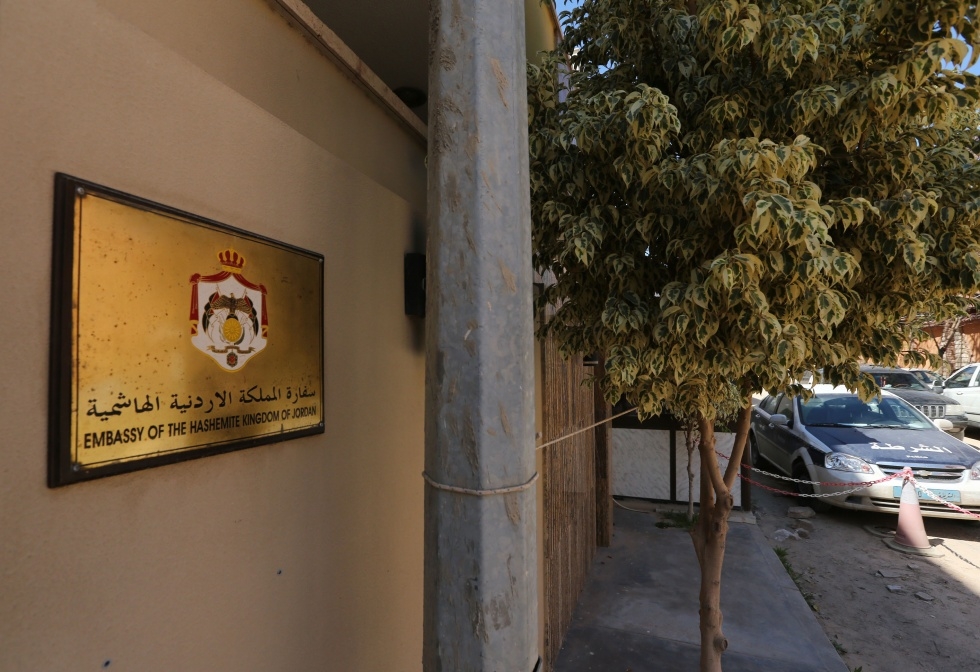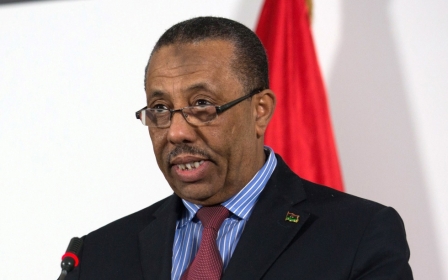Jordanian ambassador kidnapped in Libya

Jordan’s ambassador to Libya was kidnapped in Tripoli on Tuesday after masked gunmen attacked his car and shot his driver, according to a spokesperson from the Libyan Foreign Ministry.
"His convoy was attacked by a group of hooded men on board two civilian cars," Said Lassoued, Libyan foreign ministry spokesperson, told AFP.
The kidnappers are demanding the release of a Libyan imprisoned in Jordan. Mohamed Dersi was jailed for life in 2007 for planning a terrorist attack on the main airport in Jordan.
A number of foreign diplomats have been kidnapped by militia groups in recent months to secure the release of Libyans jailed in other countries.
“The kidnapping of foreign diplomats has proved a very successful bargaining chip for militias to win the release of Libyans imprisoned overseas. A previous incident involving Egyptian diplomats led to a military commander being released.” Mohamed Eljarh, Libyan analyst for Foreign Policy, told Middle East Eye.
In March, five Egyptian Embassy staff were kidnapped in Tripoli by a militia group whose leader was being held in a Cairo prison. Egypt freed Libyan military commander Shabaan Hadiya shortly after the diplomats were released.
The frequency of kidnappings in Libya highlights the power of the militias which fought Muammar Gaddafi’s forces in the 2011 revolution, and the general lawlessness around the country.
The weak interim government has been unable to disarm the militia groups and they continue to wield significant influence in fragile political conditions.
Analysts say even pro-government militias are unwilling to protect foreign diplomats from potential kidnap.
“Pro-government militias will not protect foreign embassies or their staff because they want the government to appear weak in order to extort further political and financial gains from them,” Jason Pack, researcher of Middle East history at Cambridge University and president of Libyaanalysis.com, told MEE.
Former prime minister Ali Zeidan was kidnapped by armed militants in Tripoli last October.
His captors insisted that they abducted him in response to the government’s role in the American capture of Anas al-Liby, a Libyan accused of involvement in the 1998 bombing of the US Embassy in Kenya.
These abductions tend to take place in major cities where the government is struggling to control militias with differing interests, according to analysts.
“Kidnappings occur in large cities where there are competing militias with the government lacking the capacity to protect diplomatic immunity,” Mattia Toaldo, visiting fellow at the European Council on Foreign Relations, told MEE. “We also see kidnappings in rural areas under the control of extremist militia groups.”
Libya is ranked 14th globally for risk of being kidnapped according to Control Risks, an international risk and strategy firm.
Politically motivated abductions only form part of the issue, with numerous incidents of kidnap for ransom taking place across the country. The manager of the Bank of North Africa was released in the south west town of Ubari in March after a ransom of 150,000 Libyan Dinar (£72,700) was paid to the kidnappers.
Middle East Eye propose une couverture et une analyse indépendantes et incomparables du Moyen-Orient, de l’Afrique du Nord et d’autres régions du monde. Pour en savoir plus sur la reprise de ce contenu et les frais qui s’appliquent, veuillez remplir ce formulaire [en anglais]. Pour en savoir plus sur MEE, cliquez ici [en anglais].


